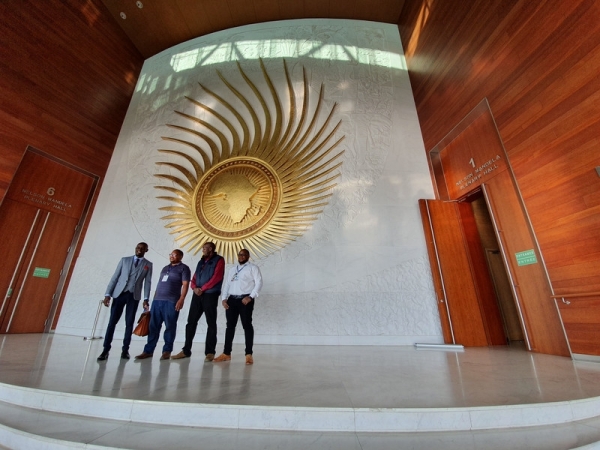African leaders unveil continent-wide plan to buy medicines
African leaders have promised to establish a continent-wide regime to buy medicines at this weekend’s annual African Union summit in Addis Ababa, but momentum towards a pan-African medicines agency remains stalled.
In a statement on Monday (19 February), the Africa Centres for Disease Control and Prevention (Africa CDC), announced the creation of a pooled African medicines procurement mechanism, promising that this could drive "a new era of predictable demand for African manufacturers, empowering them to plan for the long-term and establish a robust market worth over $50bn [€46bn]."
"The decision means the creation of a robust market for manufacturers and ensures the health security of all Africans. This will be the second independence of Africa," added Africa CDC director feneral Dr Jean Kaseya.
The move is the latest step towards a more harmonised regime for producing medicines across the African continent, a project that the European Commission has promised to support as part of a drive towards African ‘health sovereignty’.
The AU has set itself a target that by 2040, 60 percent of vaccines used in Africa will be produced locally.
Currently less than one percent of vaccines are manufactured in Africa.
Production and industrial capacity became a hot topic during the Covid-19 pandemic. South African President Cyril Ramaphosa and others accused the EU of "vaccine nationalism" after the bloc was slow to make good on its pledge to release surplus vaccines to African states. This was compounded when the EU joined forces with the United States to oppose a proposal by India and South Africa at the World Trade Organization to partially waive the agreement on intellectual property rights on vaccines to allow Covid shots to be produced at low cost.
In 2021, the European Commission announced that it would provide financial and technical support for an African Medicines Agency and pharmaceutical sector, including three vaccine hubs in Africa that could eventually become pharmaceutical production facilities.
German pharmaceutical giant BioNTech SE has also agreed to manufacture vaccines at sites in Rwanda and Senegal.
The AMA would be an AU agency intended to facilitate the harmonisation of medical regulation across the continent, modelled on the EU’s European Medicines Agency.
However, the push towards an AMA has been held up by the failure of over half of the continent’s governments to ratify the treaty to establish it.
"To date, 27 countries have ratified the treaty, an important achievement that warrants celebration," said members of the African Medicines Agency Treaty Alliance in a statement released during the summit. "However, the ratification and deposit of instruments by all 55 member states is imperative."
South Africa and Nigeria, the continent’s two largest economies, are among the group of 18 states who yet to sign the AMA treaty.
Earlier this month, EU health commissioner Stella Kyriakides said that the EU was committed to "fully-fledged African health sovereignty," and that the bloc had mobilised €1.3bn for the production of vaccines across Africa.

